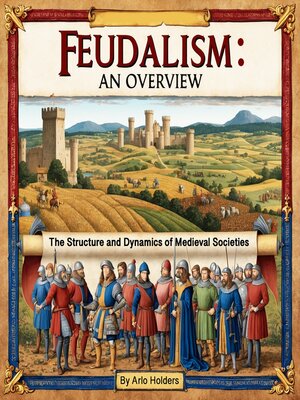Feudalism
audiobook (Unabridged) ∣ An Overview: The Structure and Dynamics of Medieval Societies
By Arlo Holders

Sign up to save your library
With an OverDrive account, you can save your favorite libraries for at-a-glance information about availability. Find out more about OverDrive accounts.
Find this title in Libby, the library reading app by OverDrive.



Search for a digital library with this title
Title found at these libraries:
| Library Name | Distance |
|---|---|
| Loading... |
Feudalism is often regarded as one of the defining features of medieval European society, deeply influencing the social, political, and economic structures from the 9th to the 15th century. At its core, feudalism is a system of reciprocal relationships based on land ownership, loyalty, and service. It is a hierarchical structure where power and land are distributed among various levels of society, creating an intricate web of obligations and rights. Understanding the foundations of feudalism requires examining its emergence, the key concepts involved, and its significance in shaping medieval societies.
The origins of feudalism can be traced back to the collapse of the Western Roman Empire in the 5th century. With the fall of centralized Roman authority, European territories faced instability and frequent invasions, notably from the Vikings, Magyars, and Muslims. As local rulers sought to protect their lands and people, they established systems of landholding that were based on personal loyalty rather than the centralized control of a king or emperor. This shift marked the beginning of feudalism. The need for defense and local governance led to a system where lords granted land, known as fiefs, to vassals in exchange for military service or other forms of support. The vassals, in turn, would offer protection and land to lower-ranking individuals, establishing a hierarchical pyramid of power.
At the heart of feudalism lies the concept of mutual obligations. Lords, who were often nobility or monarchs, provided land to their vassals, who were typically knights or lesser nobles. In return, vassals pledged their loyalty, military service, and counsel to their lords.







